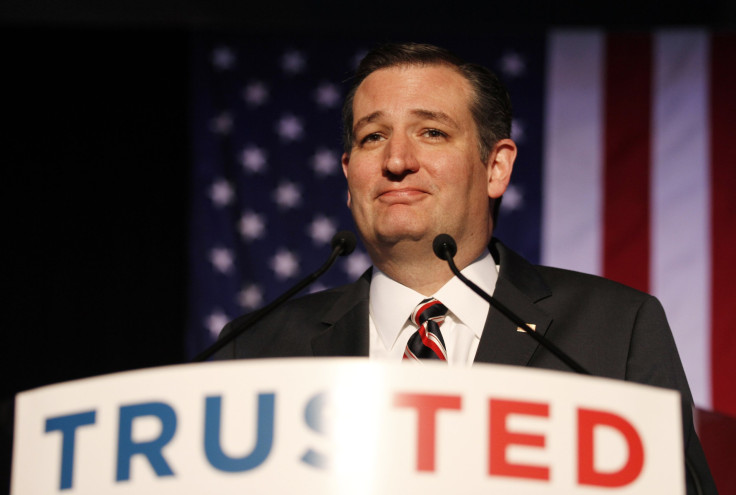Cruz Names National Security Team For Presidential Campaign

Ted Cruz, Donald Trump's closest Republican rival in the U.S. presidential race, named his national security advisers on Thursday, including former staffers of President George W. Bush and members of a think tank that has been called an anti-Muslim "hate group."
Announcing the team in a statement, Cruz said he would reverse what he described as the weakening of the United States in a dangerous world, singling out militant Islamist groups in the Middle East and North Africa as his focus.
"After two terms of a failed Obama-Clinton foreign policy, our allies are confused and frightened, and our enemies are looking for opportunities," his statement read, referring to President Barack Obama and Democratic presidential front-runner Hillary Clinton.
Among the most recognizable names on Cruz's list of 23 advisers was Elliott Abrams, who served in both President Ronald Reagan's and Bush's administrations and is a senior fellow at the Council on Foreign Relations for Middle Eastern studies.
The list, first reported by Bloomberg View, also included Frank Gaffney, a former official in President Ronald Reagan's administration, and at least two other members of a think tank Gaffney founded, the Center for Security Policy.
The center produces research that drifts far from the academic mainstream, arguing that hundreds of thousands of American Muslims support Islamist violence in the United States and that there is a conspiracy to erode the U.S. legal system by elevating sharia, the Islamic legal code, in the country.
The Southern Poverty Law Center, a civil rights organization based in Montgomery, Alabama, that monitors white nationalism in the United States, has labeled the Center for Security Policy a "hate group" and Gaffney a "noted Islamophobe."
Trump, a 69-year-old billionaire businessman from New York, has surged to the lead of the once-crowded Republican field, drawing support from predominantly white voters by promising to dramatically strengthen laws and regulations on immigration and trade.
A series of opinion polls have found about two-thirds of Republican voters like Trump's proposal to temporarily ban Muslims from entering the United States for fear they might be members of violent Islamist groups, and he cited research by Gaffney's group in announcing the plan last year.
But Trump's views are less appealing to many in the broader general American electorate, who will vote for the next president in November. A Reuters/Ipsos poll released on Thursday found that half of all women in the country have a "very unfavorable" view of him.
Cruz, a 45-year-old U.S. senator from Texas, is seeking to keep Trump from winning an outright majority of delegates as states continue to vote for party nominees in the coming months, and to wrest the nomination from him at the party's national convention in Cleveland in July.
Trump warned on Wednesday that there might be riots if he remains the most popular candidate going into the convention but does not emerge as the nominee. His rallies have been marked by angry skirmishes between supporters, protesters and security staff, sometimes resulting in punches and bloodied heads.
U.S. House of Representatives Speaker Paul Ryan, the most powerful U.S. Republican, chastised Trump on Thursday for his riot comments, telling reporters "to even address or hint to violence" is unacceptable.
Arizona and Utah will be the next states to vote, on Tuesday.
Cruz has said "everyone understands" Trump's proposed Muslim ban, but that he did not support it himself, saying there are millions of Muslims who are not murderous. Instead, he supports stopping refugees from some predominantly Muslim countries from coming to the United States.
Democratic politicians, many of whom argue that climate change is a greater threat to global stability and American security, and others have condemned Republican candidates' attacks on Islam, saying it leads to further division and discrimination.
Even many conservative groups have said Gaffney is an extremist, and some of the other advisers Cruz is naming have been critical of anti-Islamic rhetoric. They include Abrams and Mary Habeck, another former adviser to Bush; both have said Islam should not be demonized.
Trump has said his main adviser is himself, and has largely rebuffed journalists' inquiries about whether he will name a formal team of foreign policy and national security advisers.
© Copyright Thomson Reuters {{Year}}. All rights reserved.





















